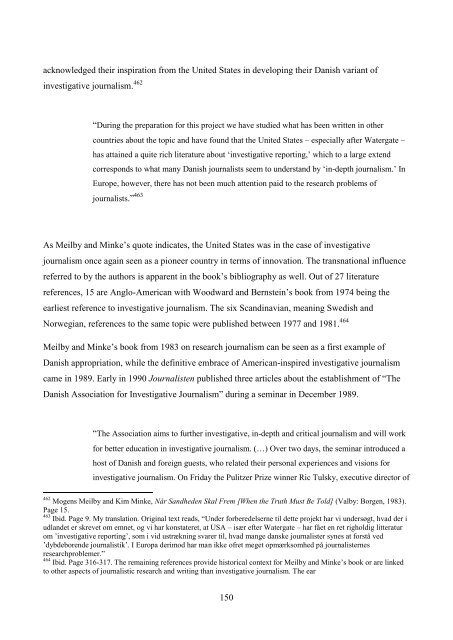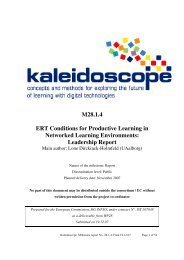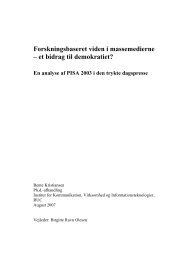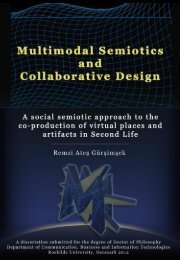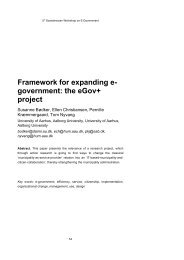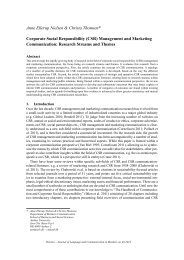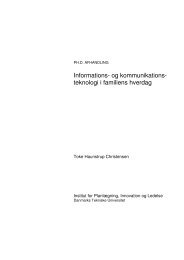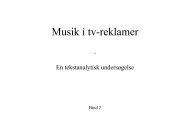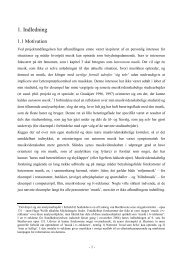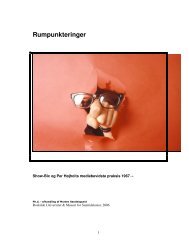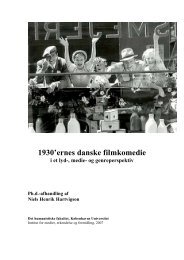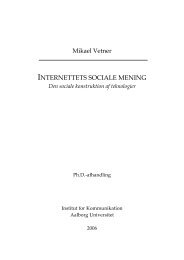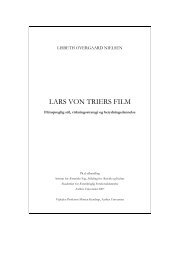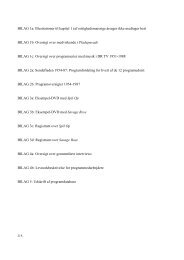The Jeremiad Over Journalism
The Jeremiad Over Journalism
The Jeremiad Over Journalism
You also want an ePaper? Increase the reach of your titles
YUMPU automatically turns print PDFs into web optimized ePapers that Google loves.
acknowledged their inspiration from the United States in developing their Danish variant of<br />
investigative journalism. 462<br />
―During the preparation for this project we have studied what has been written in other<br />
countries about the topic and have found that the United States – especially after Watergate –<br />
has attained a quite rich literature about ‗investigative reporting,‘ which to a large extend<br />
corresponds to what many Danish journalists seem to understand by ‗in-depth journalism.‘ In<br />
Europe, however, there has not been much attention paid to the research problems of<br />
journalists.‖ 463<br />
As Meilby and Minke‘s quote indicates, the United States was in the case of investigative<br />
journalism once again seen as a pioneer country in terms of innovation. <strong>The</strong> transnational influence<br />
referred to by the authors is apparent in the book‘s bibliography as well. Out of 27 literature<br />
references, 15 are Anglo-American with Woodward and Bernstein‘s book from 1974 being the<br />
earliest reference to investigative journalism. <strong>The</strong> six Scandinavian, meaning Swedish and<br />
Norwegian, references to the same topic were published between 1977 and 1981. 464<br />
Meilby and Minke‘s book from 1983 on research journalism can be seen as a first example of<br />
Danish appropriation, while the definitive embrace of American-inspired investigative journalism<br />
came in 1989. Early in 1990 Journalisten published three articles about the establishment of ―<strong>The</strong><br />
Danish Association for Investigative <strong>Journalism</strong>‖ during a seminar in December 1989.<br />
―<strong>The</strong> Association aims to further investigative, in-depth and critical journalism and will work<br />
for better education in investigative journalism. (…) <strong>Over</strong> two days, the seminar introduced a<br />
host of Danish and foreign guests, who related their personal experiences and visions for<br />
investigative journalism. On Friday the Pulitzer Prize winner Ric Tulsky, executive director of<br />
462<br />
Mogens Meilby and Kim Minke, Når Sandheden Skal Frem [When the Truth Must Be Told] (Valby: Borgen, 1983).<br />
Page 15.<br />
463<br />
Ibid. Page 9. My translation. Original text reads, ―Under forberedelserne til dette projekt har vi undersøgt, hvad der i<br />
udlandet er skrevet om emnet, og vi har konstateret, at USA – især efter Watergate – har fået en ret righoldig litteratur<br />
om ‘investigative reporting‘, som i vid ustrækning svarer til, hvad mange danske journalister synes at forstå ved<br />
‘dybdeborende journalistik‘. I Europa derimod har man ikke ofret meget opmærksomhed på journalisternes<br />
researchproblemer.‖<br />
464<br />
Ibid. Page 316-317. <strong>The</strong> remaining references provide historical context for Meilby and Minke‘s book or are linked<br />
to other aspects of journalistic research and writing than investigative journalism. <strong>The</strong> ear<br />
150


